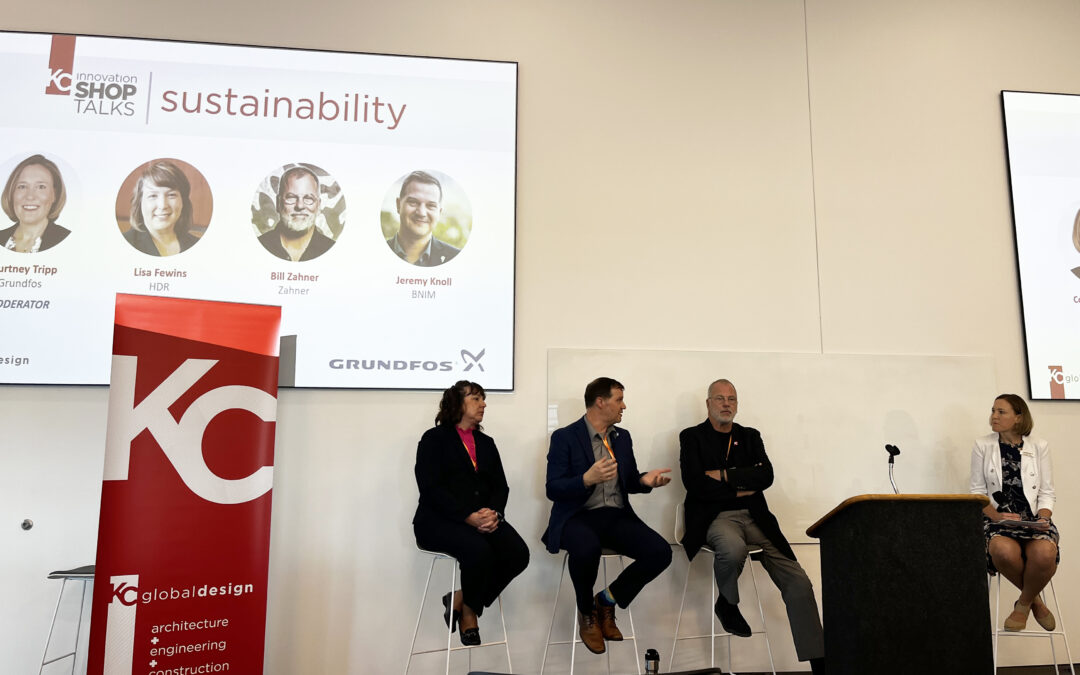At the latest KC Global Design Innovation Shop Talk, held in collaboration with the Grundfos Industry Sustainability Summit, leaders from BNIM, HDR and Zahner shared insights into how KC firms are embracing and transforming the sustainability landscape for the architecture, engineering and construction (A/E/C) industry.
Featured Panelists:
Courtney Tripp, Grundfos – Moderator
Jeremy Knoll, BNIM
Lisa Fewins, HDR
Bill Zahner, Zahner

Proactive Sustainability
The industry is evolving in regard to sustainability strategies — shifting from compliance-based approaches to proactive sustainability. Lisa Fewins explained how, in previous years, companies’ focus was on simply “meeting the regulations.” Today, HDR helps clients focus on larger ecosystem solutions like the One Water approach, which integrates water management on a regional scale, exceeding the impact of traditional stand-alone projects.
Sustainability as a Financial Imperative
Sustainability is no longer just about environmental stewardship — it’s also about financial sense. Bill Zahner emphasized how sustainable practices can actually boost profitability; he pointed toward Zahner’s reverse osmosis system, which transformed 250,000 gallons of hazardous waste into less than 20 pounds of solid waste, improving environmental impact while reducing waste management costs.
Reducing Embodied Carbon
Embodied carbon continues to be a prime concern in the construction field — representing 28% of building sector emissions. Jeremy Knoll shared how BNIM’s design for the new KCI Airport terminal parking garage harnessed innovative concrete solutions to cut carbon emissions by 50%. Further, this development extended beyond the project itself — influencing the adoption of limestone cement, a less emissions-intensive material, as the new construction standard across the KC region.
Collaborating Proactively for a Better World
Stakeholder partnership is increasingly critical in successful green development, with all panelists emphasizing early full-team involvement as key to embedding sustainability into projects. Regenerative design takes the stakeholder responsibility to the next level — leveling up beyond the “do no harm” mentality to proactively making the environment better (i.e. providing additional clean water to the communities in which projects are built).
—–
KC Global Design: Elevating A/E/C Thought Leadership
KCGD’s Innovation Shop Talk series continues to foster innovation by uniting thought leaders in sustainability, helping position Kansas City as a leader in sustainable design. As the industry progresses, these conversations are driving the city’s A/E/C firms to the forefront of global environmental efforts while boosting economic viability.

